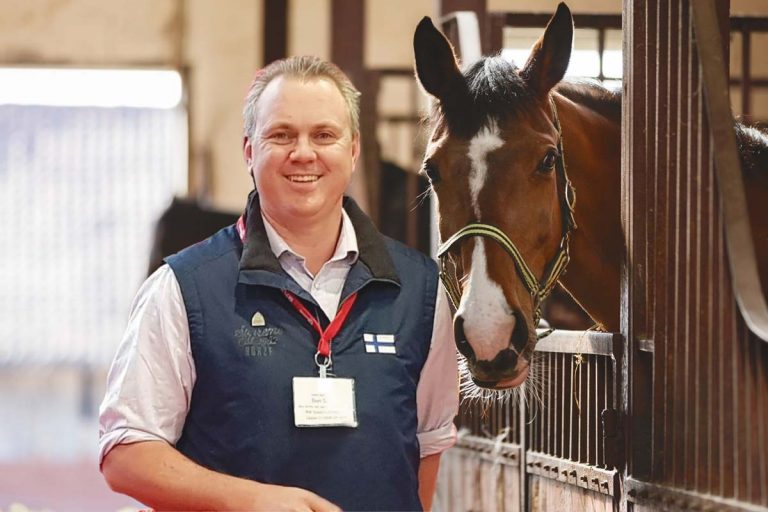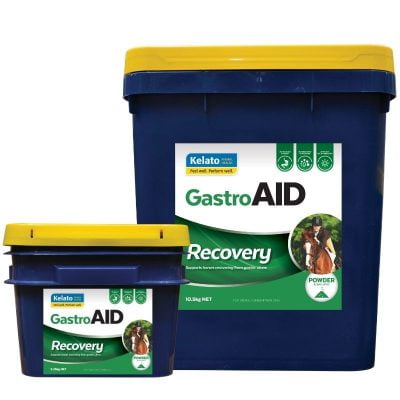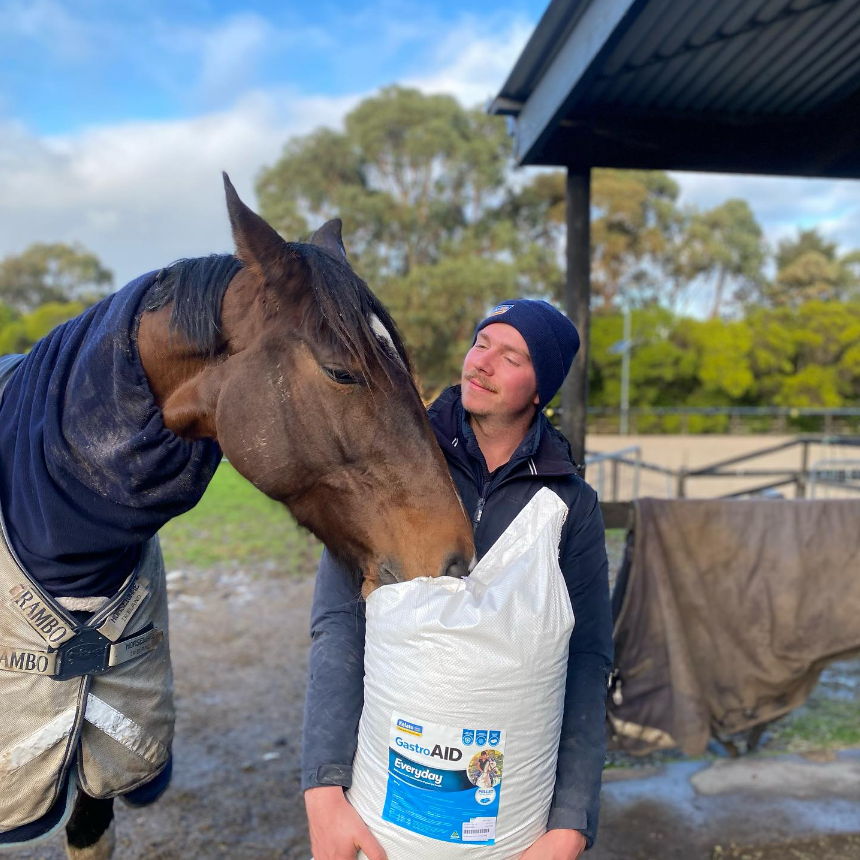A handy guide for choosing the RIGHT gut supplement for your ulcer prone horse.
You have just found out your horse has ulcers and after veterinary treatment, it has been recommended you start feeding a gut health supplement for the management of ulcers. But where do you even begin? The equine market is crowded with gut health supplements, and it can be overwhelming when you start your search.
Here is a handy guide on what to look for when choosing the RIGHT supplement for your horse.
1. Tick the box for “alkaline slime”
You might have heard the world leading expert in Equine Gastric Ulcer Syndrome (EGUS), A/Prof Dr Ben Sykes, talk about always looking for a supplement that contains ingredients that create an “alkaline slime”.
What does he mean by this?
If your horse is suffering from glandular ulcers, you might be aware that this condition is believed to be caused by a breakdown of the natural defences (muco-bicarbonate layer) in the glandular region of your horse’s stomach. This muco-bicarbonate layer of protection has slimy, mucous, alkaline (not acidic) properties to protect the delicate glandular stomach lining from the negative effects of being exposed to stomach acid. When this natural defence mechanism begins to breakdown, your horse is then prone to developing glandular ulcers.
Dr Sykes looks for a supplement that can create an “alkaline slime” in a horse’s stomach in an attempt to recreate the natural muco-bicarbonate defence mechanism. This is why he always recommends GastroAID Recovery for the long-term management of EGUS.
When you are considering which product to choose, pectin and lecithin are ingredients you should look out for. GastroAID Recovery is UNIQUE as it contains the coating agents of pectin and lecithin plus a buffer which forms an “alkaline slime” barrier over the stomach wall to help to protect it from acid burn whilst also strengthening the mucosal lining.
GastroAID Recovery is formulated for horses with EGUS, horses recovering from EGUS, or those under a significant amount of stress. If your horse is prone to developing gastric ulcers, Dr Sykes recommends using GastroAID Recovery during these stressful periods.
2. Is the supplement backed by research?
When picking a gut health supplement, you want to make sure that the product has scientific research behind its ingredients. It is quite easy to start to enter the black hole of research, so don’t be afraid to ask the company to show you the science behind the ingredients within the product.
Dr Sykes found in his independent research, that the key ingredients of GastroAID Recovery, had a positive effect on reducing the development, or exacerbation, of EGUS (Sykes et.al 2014). In the same study, the core constituent ingredients of GastroAID Recovery were also demonstrated to reduce the rate of occurrence of faecal acidosis in a high-risk population of Thoroughbred racehorses (Sykes et.al 2013).
Not only is GastroAID Recovery backed by Dr Sykes’ independent research, but it also has scientifically proven high-quality ingredients that are all listed on the label.
3. Don’t forget the hindgut!
When your horse begins his ulcer journey to recovery, it is easy to have your attention drawn to the focus of your horse’s stomach. However, we must not forget about the importance of the total digestive tract.
For this reason, you want to look for a supplement that not only has the key ingredients we mentioned earlier for foregut health but also contains ingredients for hindgut health.
For hindgut health, GastroAID Recovery contains a prebiotic and probiotic, which work together to stimulate the growth of beneficial, fibre-fermenting microbes and enhance feed conversion efficiency.
4. Is the product GMP?
Good Manufacturing Practice (GMP) ensures supplements that are supplied into the Australian market are manufactured at the highest quality. Every step of manufacture must meet a certain standard before the product can be released into the market. Compliance in Australia is monitored through GMP audits. All Kelato products meet GMP and conform to ISO quality standards.
5. Acknowledge the feedback
We firmly believe that we should listen to the experiences that other horse owners have with gut health supplements. However, one thing to remember is that each horse is an individual, just like us. If one product works for one horse, it doesn’t necessarily mean it will work for the other.
It is extremely easy to get swept up in any new trends, so you want to try and focus on the task at hand for your individual horse. It is great to listen, hear and learn from horse owners who are also going through the ulcer recovery journey.
Don’t forget that gut health supplements play only one role within the management of EGUS. You want to make sure you can address all the risk factors that have been identified for squamous (ESGD) and glandular disease (EGGD) and implement them accordingly.
Want to find out more?
Head to the GastroAID Recovery page, get in touch on 1800 KELATO or email technical@kelato.com.au.
Sykes, BW, Sykes, KM, & Hallowell, GD 2013, ‘Efficacy of a Combination of a Unique Pectin-Lecithin Complex (Apolectol®), Live Yeast and Magnesium Hydroxide in the Prevention of EGUS and Faecal Acidosis in Thoroughbred Racehorses: A Randomised, Blinded, Placebo Controlled Clinical Trial’ Equine Veterinary Journal, vol. 45, no. s44, pp. 13.Sykes, BW, Sykes, KM, & Hallowell, GD 2014, ‘Efficacy of a Combination of Apolectol, Live Yeast (Saccharomyces cerevisiae [CNCM I-1077]), and Magnesium Hydroxide in the Management of Equine Gastric Ulcer Syndrome in Thoroughbred Racehorses: A Blinded, Randomized, Placebo-Controlled Clinical Trial’ Journal of Equine Veterinary Science, vol. 34, no. 11-12, pp. 1274–1278, doi: 10.1016/j.jevs.2014.09.006.





